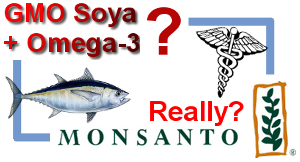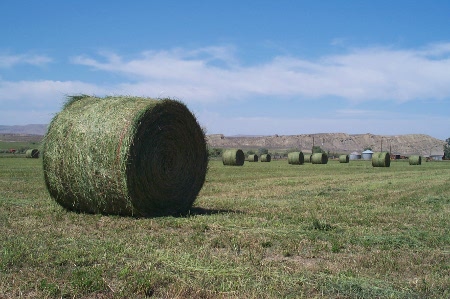Ignoring criticis and finding their concerns to be “unlikely,” on May 12, 2010 APHIS approved for continued field tests the planting of experimental genetically modified eucalyptus trees across seven states.
|
|
|||
In the News - News and OpinionThe British Beekeepers’ Association is moving away from cash sponsorship deals with pesticide manufacturers after concerns that the chemicals may be harmful to bees. The Association is looking for other sources of funding. According to TimesOnline, bee numbers in Britain are down 54 per cent in 20 years. It’s well documented that the conventional factory-farm method of raising animals for food – especially cattle – is an energy-intensive, inhumane (for animals and workers), water-guzzling, poisonous-emissions-releasing, earth-polluting endeavor… Omnivores who have no interest in giving up their bacon or steaks should switch to sustainable, humane versions of their favorite proteins. Immediately. The claims by biotechnology corporations that genetic engineering increases crop yields, and is therefore necessary to feed a growing world population, have also recently been refuted. Failure to Yield, a report by the Union of Concerned Scientists published in April 2009, is the first to evaluate in detail the overall yield effect of genetic engineering. Specifically, the report concludes “no currently available transgenic varieties enhance the intrinsic yield of any crops. The intrinsic yields of corn and soybeans did rise during the twentieth century, but not as a result of GE traits. Rather, they were due to successes in traditional breeding.” Until recently, not many consumers were aware of the widespread use of a toxic and environmentally damaging chemical, hexane, in the manufacturing of “natural” soyfoods such as vegetarian burgers, nutrition bars, and protein shakes. The use of chemical solvents such as hexane is strictly prohibited in organic food processing, yet its use is widespread in the “natural” soy industry, including in some products labeled as “made with organic soybeans,” such as Clif® Bars. Hexane, a neurotoxin, is listed as a “hazardous air pollutant” by the U.S. Environmental Protection Agency (EPA), and grain processors, including soy processors, are responsible for more than two-thirds of all hexane emissions in the United States. Monsanto has crops resistant to glyphosate. Bayer is selling cotton and soybeans resistant to glufosinate, another weedkiller. Monsanto’s newest corn is tolerant of both glyphosate and glufosinate, and the company is developing crops resistant to dicamba, an older pesticide. Syngenta is developing soybeans tolerant of its Callisto product. And Dow Chemical is developing corn and soybeans resistant to 2,4-D, a component of Agent Orange, the defoliant used in the Vietnam War. President Obama’s appointment of Dr. Siddiqui to the post of the Chief Agricultural Negotiator at the U.S. Trade Representative’s Office, guarantees that the corporate agenda of biotech and pesticides industry will be promoted around the world, ensuring the continued global spread of GMOs and pesticides. Monsanto claims that it is pursuing a legal battle over the right to grow genetically modified alfalfa because it is concerned with farmers, fairness and choice. Yet Monsanto’s appeals in the case have a lot more to do with protecting its right to continue selling GM seeds and pesticides. Today, the U.S. Supreme Court is hearing oral arguments in the case of Monsanto v. Geertson Seed Farms. At stake is a decision issued by California District Court which issued a permanent injunction against any further planting of genetically engineered alfalfa crop in 2007. After airing another arguably favorable report on genetically modified crops without acknowledging Monsanto as Marketplace’s sponsor, the program is soliciting listeners’ comments as to whether the program should announce Monsanto’s sponsorship when airing reports discussing Monsanto and their products. A new study by Penn State University found widespread and remarkably high level pesticide and other toxicant contamination of bee hives. The study sheds light on how modern day agriculture contributes to Colony Collapse Disorder. The first genetically modified bananas were recently harvested in Australia. But there is little reason to celebrate as, like other GMOs, genetically modified bananas bring to the table the same unanswered questions and concerns about their impact on health and the environment. On March 16, 2010, a California District Judge denied plaintiffs’ request to halt the planting of GE sugar beets. The Court’s decision, however, left open the possibility of a ban, which is to be determined at the permanent injunction hearings in July. A recent study conducted by the U.S. Geological Survey found that ALL fish tested from 291 freshwater streams across the United States was contaminated with mercury. After nearly a two-hour hearing yesterday, the U.S. District Judge Jeffery White reserved judgment as to whether a preliminary injunction, that would prevent the production or planting of genetically modified sugar beet seeds, should issue. Both parties, however, expect a quick decision as farmers will soon be ready to plant their crop. Organic farmers and environmental groups will seek this week an injunction to stop the planting of the GM beets until the U.S. Department of Agriculture’s Animal and Plant Health Inspection Service (“APHIS”) conducts an environmental impact statement (“EIS”). The lawsuit also seeks to bar the sale of sugar made from GM modified beets. In December 2009, the USDA has released its draft environmental impact statement proposing to deregulate Monsanto’s genetically engineered alfalfa. GMO Journal submitted its public comment to the agency urging it to continue regulating GE alfalfa. There is still time to take action before the March 3, 2010 deadline. Do you part — tell USDA to reject Monsanto’s GE alfalfa. There is little doubt that Monsanto-farmer contracts are fundamentally unfair to the farmers. In this case, David does not fair well against Goliath. But are such agreements also fundamentally unfair to society because, unless you grow it yourself, what the farmer grows is what you eat. We’ve all been told: consume Omega-3 fatty acids, usually found in cold water oily fish, for better health. But we’ve also been warned: with global fish stocks in decline, if everyone consumed the recommended amounts of fish in order to obtain enough Omega-3s, the results would be catastrophic for wild fish. Enter Monsanto: with the collaboration of Solae, the company has developed a soybean that has been genetically engineered to contain the Omega-3 fatty acids. According to a story published recently in the St. Louis Post-Dispatch, “Monsanto Co. asked the U.S. Supreme Court to review a lower court’s decision to ban the planting of genetically modified alfalfa until an environmental review is complete.” Monsanto’s money buys the “truth” even on public radio so that it too spreads Monsanto’s PR message “Produce more, Conserve More.” In reality, agriculture a la Monsanto is everything but conservation or sustainability. Read our analysis of Monsanto’s treatment by Marketplace. Monsanto is now the world’s leading agricultural biotechnology corporation and that spells bad news for small farmers. As many farmers have learned, they are not free from the watchful eye of the Big Brother, who, in this case, is Monsanto. German researchers have successfully transferred a fungal resisting gene found in bacteria and other plants into peas but as a result of high administrative costs and political uncertainty in Germany, they will continue field testing genetically modified peas in United States. |
|||
|
 |
|||














